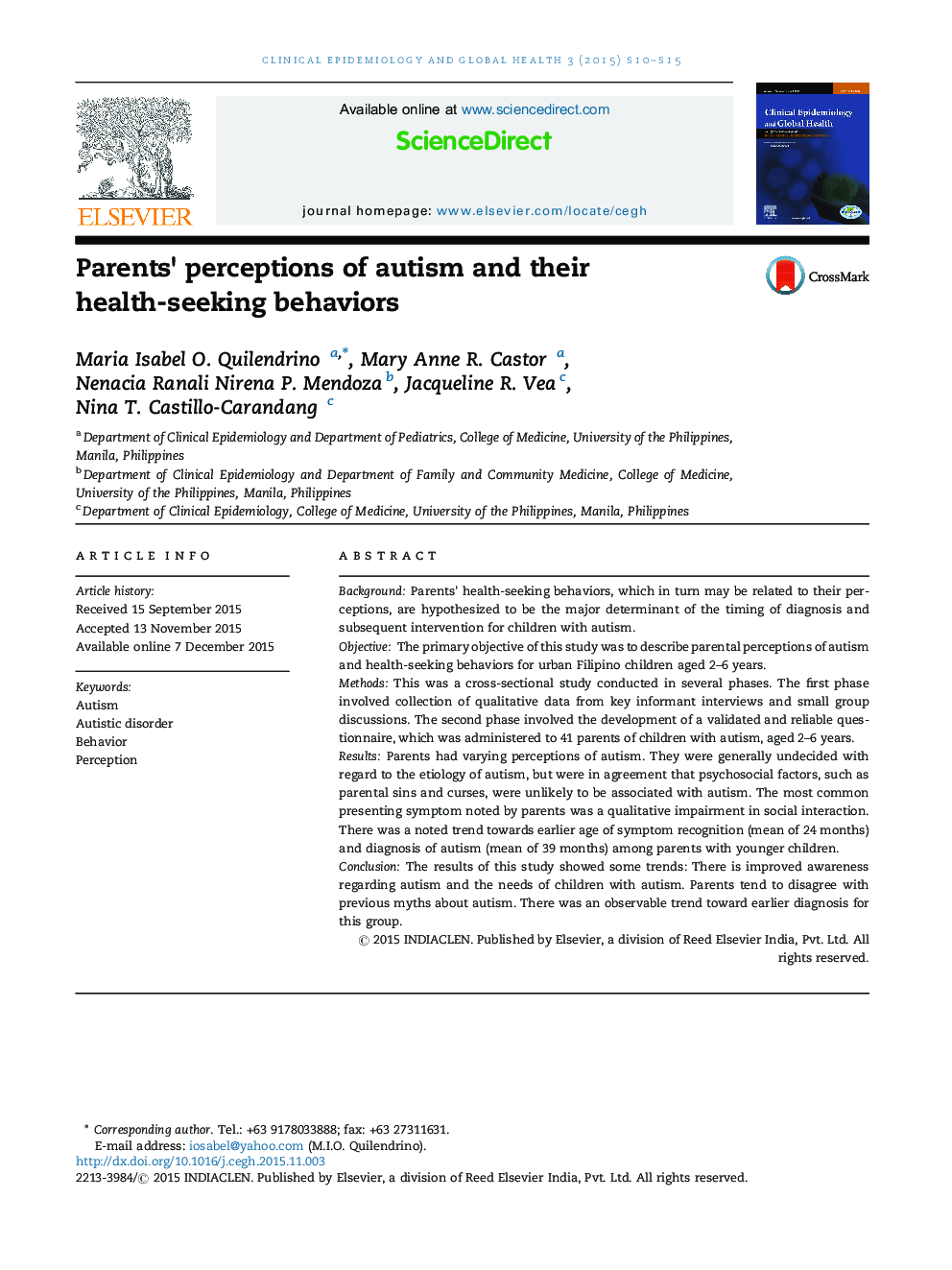| Article ID | Journal | Published Year | Pages | File Type |
|---|---|---|---|---|
| 3396308 | Clinical Epidemiology and Global Health | 2015 | 6 Pages |
BackgroundParents’ health-seeking behaviors, which in turn may be related to their perceptions, are hypothesized to be the major determinant of the timing of diagnosis and subsequent intervention for children with autism.ObjectiveThe primary objective of this study was to describe parental perceptions of autism and health-seeking behaviors for urban Filipino children aged 2–6 years.MethodsThis was a cross-sectional study conducted in several phases. The first phase involved collection of qualitative data from key informant interviews and small group discussions. The second phase involved the development of a validated and reliable questionnaire, which was administered to 41 parents of children with autism, aged 2–6 years.ResultsParents had varying perceptions of autism. They were generally undecided with regard to the etiology of autism, but were in agreement that psychosocial factors, such as parental sins and curses, were unlikely to be associated with autism. The most common presenting symptom noted by parents was a qualitative impairment in social interaction. There was a noted trend towards earlier age of symptom recognition (mean of 24 months) and diagnosis of autism (mean of 39 months) among parents with younger children.ConclusionThe results of this study showed some trends: There is improved awareness regarding autism and the needs of children with autism. Parents tend to disagree with previous myths about autism. There was an observable trend toward earlier diagnosis for this group.
